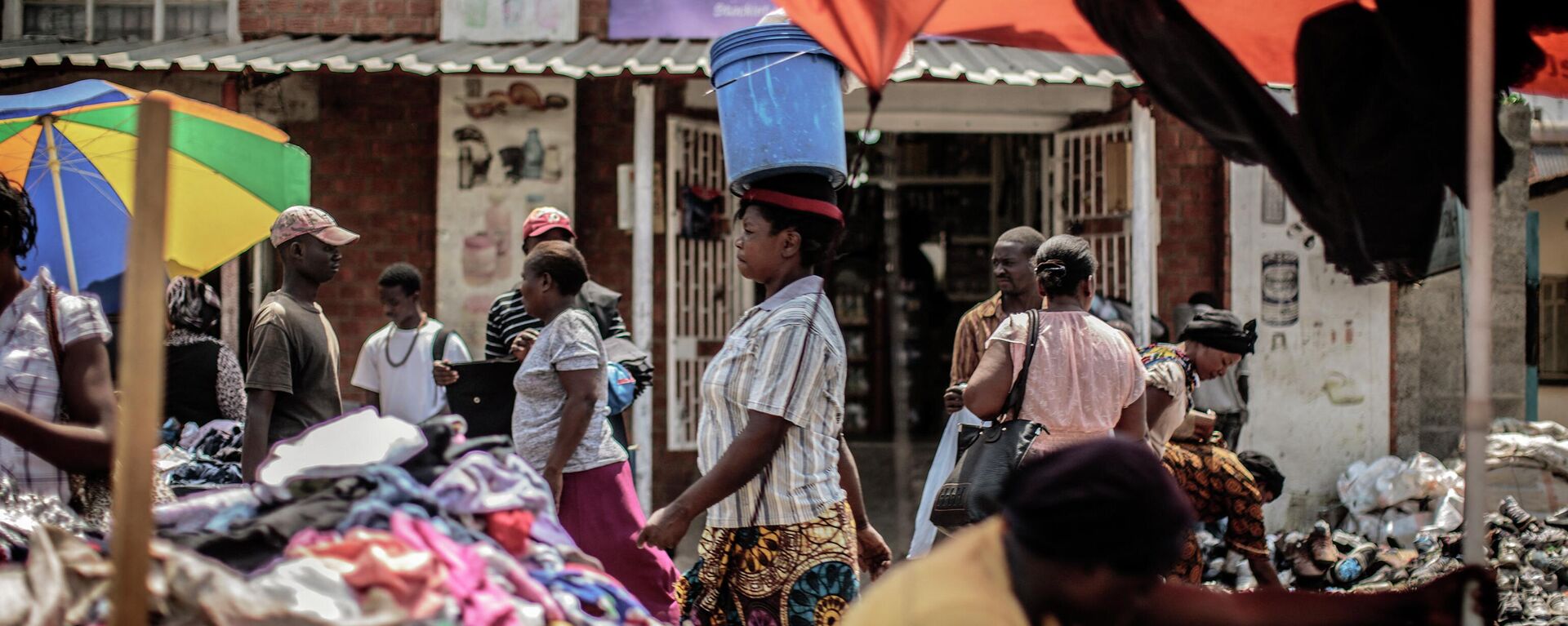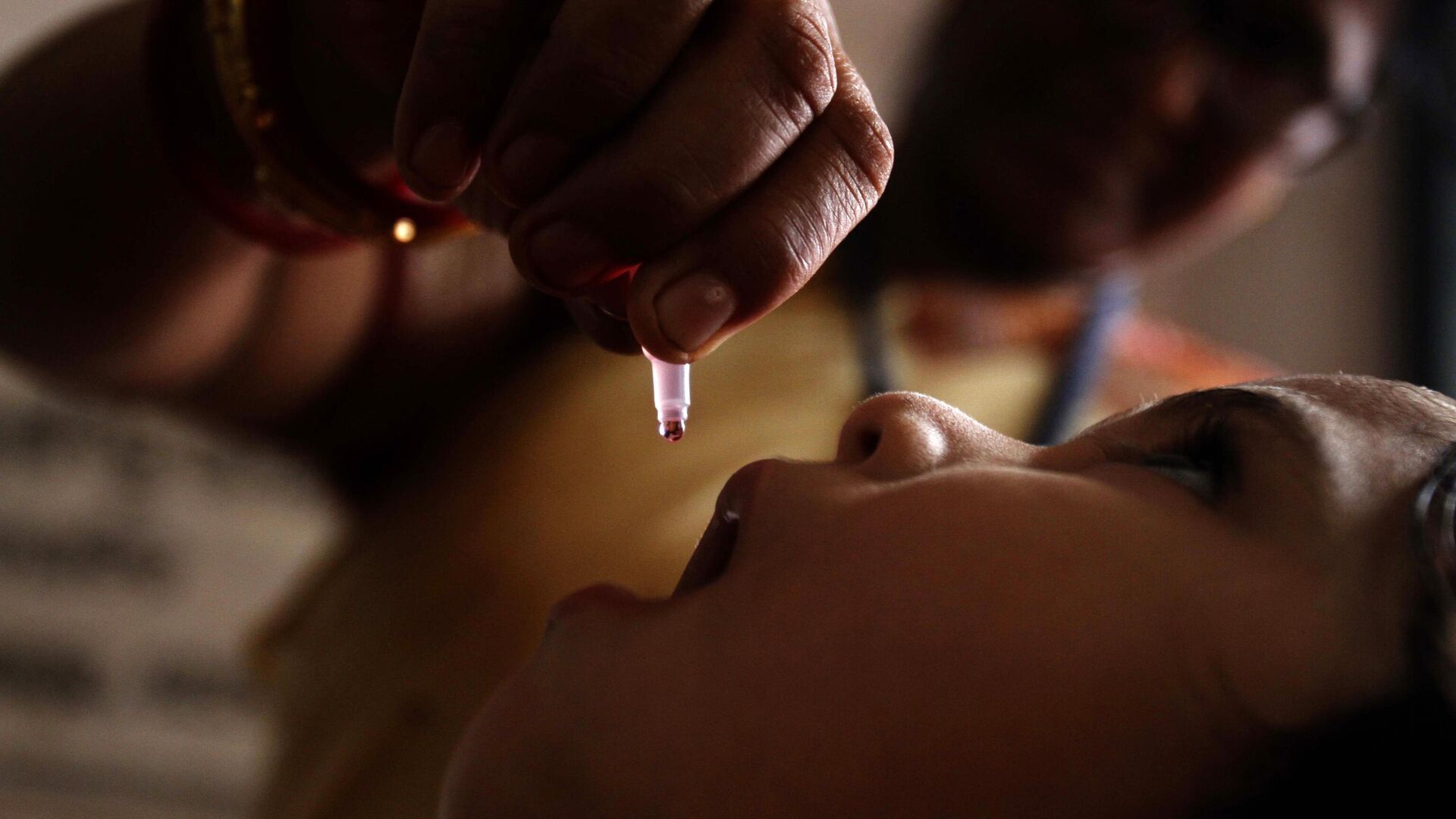https://sputnikglobe.com/20221117/all-you-need-to-know-about-measles-amid-outbreak-in-india-1104313335.html
All You Need to Know About Measles Amid Outbreak in India
All You Need to Know About Measles Amid Outbreak in India
Sputnik International
Over 538 confirmed cases of measles have been registered in India's Maharashtra state. As per official data, however, a total of 5,445 suspected measles cases have been reported in the state since January this year.
2022-11-17T09:43+0000
2022-11-17T09:43+0000
2023-05-13T18:39+0000
india
measles
measles
measles
measles outbreak
measles outbreak
measles, mumps and rubella
measles outbreak
measles outbreak
disease
https://cdn1.img.sputnikglobe.com/img/07e6/0b/11/1104319395_0:320:3072:2048_1920x0_80_0_0_ad4bbc4e7a12108a9f5fa2fd080f6c6d.jpg
An outbreak of measles in India's Maharashtra state has raised alarm among health officials, prompting a mass vaccination of children who missed out on doses in all of the state's districts by November 30.On Monday, a one-year-old boy reportedly died of measles after undergoing treatment at a hospital for about a week. Although measles itself is not considered fatal, it can lead to serious complications, such as pneumonia, diarrhea, and encephalitis, which can lead to tragic consequences if not treated promptly and properly.In the wake of the unexpected surge of cases in Maharashtra, the Brihanmumbai Municipal Corporation (BMC) set up isolation wards in hospitals for patients with both mild and severe symptoms.Bellow is all you need to know about the disease and what can be done to prevent contraction.What is Measles?Measles, known in India as "khasra," is an airborne disease that is caused by a virus in the paramyxovirus family that infects the respiratory tract and affects the entire body. It is highly contagious and spreads through direct contact or through the air by coughing, sneezing, nasal discharge of infected people, and more.Typical SymptomsSymptoms of measles usually show up after 10-12 days of exposure to an infected person.It all starts with fever, cough, runny nose, and inflamed eyes; later, small white spots appear inside the mouth, and red rashes show up on the face and the body.Symptoms typically last from seven to 10 days, eventually resulting in several complications due to measles-induced immunosuppression. These include diarrhea (in 8% of cases), middle ear infection (7%), and pneumonia (6%), which might cause death.According to a report by the Centers for Disease Control and Prevention (CDC), measles can cause serious illness even in healthy children, requiring hospitalization.People at a higher risk of developing severe illness include infants and children under five years of age, adults above 20 years of age, pregnant women, and people with compromised immune systems, such as from leukemia or HIV infection.Treatment & PreventionTreatment for measles focuses on the cure for the infection, pain relief, and developing immunity to boost the antibody responses to measles and decreases the risk of serious complications. Medication includes a regular dose of Vitamin A.To reduce measles deaths across the globe, the World Health Organization (WHO) has issued a key public health strategy that includes routine measles vaccination for children and mass immunization campaigns, especially in countries that have low routine coverage of vaccination.The measles vaccine, which has been in use since the 1960s, can be given to children in two doses at six to nine months of age.
https://sputnikglobe.com/20220903/death-toll-from-zambia-measles-outbreak-soars-to-23-1100335060.html
Sputnik International
feedback@sputniknews.com
+74956456601
MIA „Rossiya Segodnya“
2022
Sangeeta Yadav
https://cdn1.img.sputnikglobe.com/img/07e4/08/1b/1080292803_0:121:960:1081_100x100_80_0_0_7490b319dab9611e309056b177265184.jpg
Sangeeta Yadav
https://cdn1.img.sputnikglobe.com/img/07e4/08/1b/1080292803_0:121:960:1081_100x100_80_0_0_7490b319dab9611e309056b177265184.jpg
News
en_EN
Sputnik International
feedback@sputniknews.com
+74956456601
MIA „Rossiya Segodnya“
Sputnik International
feedback@sputniknews.com
+74956456601
MIA „Rossiya Segodnya“
Sangeeta Yadav
https://cdn1.img.sputnikglobe.com/img/07e4/08/1b/1080292803_0:121:960:1081_100x100_80_0_0_7490b319dab9611e309056b177265184.jpg
khasra in india, measles outbreak in india, measles prevention, measles vaccine, measles disease, virus, vaccine for measle, health crisis, health alert, measles vaccination, pneumonia, diarrhea, encephalitis, deaths due to measles, measles treatment, measles prevention, measles cure,
khasra in india, measles outbreak in india, measles prevention, measles vaccine, measles disease, virus, vaccine for measle, health crisis, health alert, measles vaccination, pneumonia, diarrhea, encephalitis, deaths due to measles, measles treatment, measles prevention, measles cure,
All You Need to Know About Measles Amid Outbreak in India
09:43 GMT 17.11.2022 (Updated: 18:39 GMT 13.05.2023) Over 538 confirmed cases of measles have been registered in India's Maharashtra state. As per official data, however, a total of 5,445 suspected cases have been reported in the state since January this year.
An outbreak of measles in India's Maharashtra state has raised alarm among health officials, prompting a mass vaccination of children who missed out on doses in all of the state's districts by November 30.
On Monday, a one-year-old boy reportedly died of measles after undergoing treatment at a hospital for about a week. Although measles itself is not considered fatal, it can lead to serious complications, such as pneumonia, diarrhea, and encephalitis, which can lead to tragic consequences if not treated promptly and properly.
In the wake of the unexpected surge of cases in Maharashtra, the Brihanmumbai Municipal Corporation (BMC) set up isolation wards in hospitals for patients with both mild and severe symptoms.
Bellow is all you need to know about the disease and what can be done to prevent contraction.
Measles, known in India as "khasra," is an airborne disease that is caused by a virus in the paramyxovirus family that infects the respiratory tract and affects the entire body.
It is highly contagious and spreads through direct contact or through the air by coughing, sneezing, nasal discharge of infected people, and more.

3 September 2022, 08:56 GMT
Symptoms of measles usually show up after 10-12 days of exposure to an infected person.
It all starts with fever, cough, runny nose, and inflamed eyes; later, small white spots appear inside the mouth, and red rashes show up on the face and the body.
Symptoms typically last from seven to 10 days, eventually resulting in several complications due to measles-induced immunosuppression. These include diarrhea (in 8% of cases), middle ear infection (7%), and pneumonia (6%), which might cause death.
According to a report by the Centers for Disease Control and Prevention (CDC), measles can cause serious illness even in healthy children, requiring hospitalization.
"One out of every 1,000 measles cases will develop acute encephalitis, which often results in permanent brain damage. One to three out of every 1,000 children who become infected with measles will die from respiratory and neurologic complications," the report said.
People at a higher risk of developing severe illness include infants and children under five years of age, adults above 20 years of age, pregnant women, and people with compromised immune systems, such as from leukemia or HIV infection.
Treatment for measles focuses on the cure for the infection, pain relief, and developing immunity to boost the antibody responses to measles and decreases the risk of serious complications.
Medication includes a regular dose of Vitamin A.
To reduce measles deaths across the globe, the World Health Organization (WHO) has issued a key public health strategy that includes routine measles vaccination for children and mass immunization campaigns, especially in countries that have low routine coverage of vaccination.
The measles vaccine, which has been in use since the 1960s, can be given to children in two doses at six to nine months of age.



